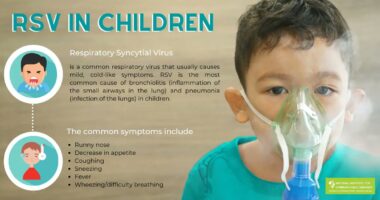Learn about ‘postpartum depression’ it is a real serious sickness, After the baby is born, it’s normal for new mothers to feel a range of emotions, from elation and exhaustion to anxiety and depression. For some women, these feelings are intense and long-lasting, and they may be diagnosed with postpartum depression. While this can be a difficult time for both mother and child, there are treatments available that can help.

What is postpartum depression?
Symptoms
Causes
Risk factors
Complications
Treatment
Postpartum depression (PPD) is a form of clinical depression that can occur in the weeks and months following the birth of a child. It is thought to be caused by a combination of hormonal changes and the stress of becoming a parent. PPD affects up to 15% of new mothers, and its symptoms can range from mild to severe. If left untreated, PPD can have a negative impact on the mother-child relationship and the development of the child.
The most common symptoms of PPD include: sadness, anxiety, irritability, hopelessness, guilt, worthlessness, exhaustion, difficulty concentrating, trouble sleeping, and thoughts of suicide. These symptoms can make it difficult for new mothers to perform their daily tasks and care for their baby. PPD can also cause physical symptoms such as headaches, chest pain, and stomach problems.
There is no one single cause of PPD. It is thought to be caused by a combination of hormonal changes (including a drop in estrogen and progesterone levels) and the stress of becoming a parent. Other risk factors for PPD include having a history of depression
Causes of postpartum depression
There are many possible causes of postpartum depression, including hormonal changes, lack of sleep, stress, and anxiety. It is important to talk to your doctor if you are experiencing any symptoms of depression, as they can help you develop a treatment plan.
Symptoms of postpartum depression
If you’re experiencing any of the following symptoms after giving birth, you may be suffering from postpartum depression:
-Sadness or hopelessness
-Loss of interest in activities you used to enjoy
-Excessive anxiety or worry
-Sleep problems (difficulty falling asleep, staying asleep, or waking up too early)
-Fatigue or low energy
– Difficulty concentrating
-Irritability or anger
-Unexplained physical aches and pains
– Reduced appetite or significant weight loss/gain
If you think you may be suffering from postpartum depression, it’s important to seek professional help. Talk to your doctor about your symptoms and ask for a referral to a mental health professional.
Treatment for postpartum depression
Postpartum depression is a serious medical condition that can occur after the birth of a child. While it is most common in the first few weeks after delivery, it can also happen later on.
There are many different treatments for postpartum depression, and the best course of action will vary from person to person. However, some common treatments include therapy, medication, and support groups.
If you think you might be suffering from postpartum depression, it’s important to reach out for help. Talk to your doctor or a mental health professional to get started on the road to recovery.
Postpartum depression support groups
If you’re struggling with postpartum depression, know that you’re not alone. There are many support groups available to help you through this difficult time.
Postpartum depression support groups provide a safe and supportive environment for mothers to share their experiences and feelings. These groups can be a great resource for information and support.
If you’re interested in finding a postpartum depression support group, your doctor or midwife may be able to refer you to one in your area. You can also search online for groups in your area.
Conclusion
Postpartum depression is a real and serious condition that can be hard to cope with. However, there are ways to manage it and get through it. If you or someone you know is struggling with postpartum depression, don’t hesitate to reach out for help. Talk to your doctor, a therapist, or a support group. There is no shame in admitting that you need help and seeking out resources to make sure you’re taking care of yourself both physically and mentally.









